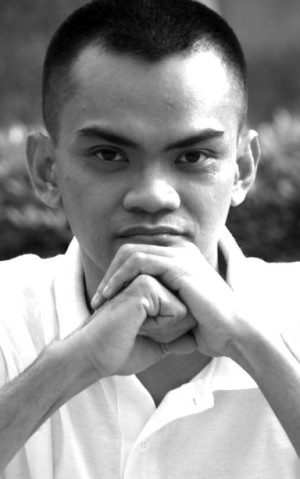
PAREDES
Among the dead that came to our minds during the Halloween break was Rico J. Puno.
The singer succumbed to cardiac arrest last October 30, on the eve of Halloween, so TV interspersed sad tributes on him with scenes of campy costume parties happening all over the country.
Yet, if that sounded absurd or bizarre, we have to recall that that is actually the kind of art or entertainment that Rico J. Puno created — beautiful and funny at the same time.
In its story about his death, the New York Times called Rico the “soul pioneer in the Philippines” recalling how a chance encounter with him and the American Motown band Temptations, which was performing in the hotel where Rico was then working as a resident singer, led to contracts with local recording studios.
He began recording covers of popular songs such as Barbra Streisand’s “The Way We Were” and Marvin Gaye’s “Baby I’m for Real” in his typical Taglish rendition, often interpreted with punchlines that entertained Filipino fans.
But it wasn’t all for the wit. Rico’s voice had a tonal range that surpassed even Marvin Gaye, which makes his version of “Baby I’m for Real” probably better than the original (at least for Filipino fans).
Yet, if I were in my teenage years, I’d probably be rather dead that caught listening to Rico’s songs.
To me and my friends back then who were already discovering rock music in the early 80s, Rico’s soul and disco songs were already out of fashion.
They were the music of our parents.
It could well be our lullaby playing softly in the background on the radio or turntable as we took mandatory afternoon naps growing up as young kids in the early years of Martial Law.
Today, I look at Rico’s pictures as a young singer in semi-afro hair, chunky elevator shoes, and bell-bottomed blue jeans and I see my late uncle Lalo who, as a young man in the 70s, also worked in a five star hotel in Manila like Rico.
He loved to dress up like his idol, Rico.
Whenever my uncle came home, he would visit us with his other siblings and their families.
The whole clan would then gather around our bulky turntable to play vinyl records from my father’s collection that included his favorites Matt Monro, Engelbert Humperdinck, and of course, local singers like Victor Wood, Pilita Corales and Rico J. Puno.
Or they would listen to tapes in our new cassette player. But more than just listen to tapes, they all loved to sing together with a guitar and record it with blank tapes.
I could still recall my uncle Lalo in his long hair, mustache, and bell-bottomed jeans singing Rico J. Puno’s songs with his guitar.
Those memories were preserved in the tapes that we played occasionally up to the time when I was about to leave home to study in Cebu.
Unfortunately, those tapes were all lost now.
Today, having outgrown my old musical biases brought about by a generation gap, I can listen to Rico J. Puno and just enjoy the music and the witty punchlines at the same time.
And yes, perhaps, it was more out of nostalgia that makes the music even more delightful.
The songs just have their way of evoking certain moods and feelings that, in my case, were those happy reunions with our young uncle who was the family’s resident “Rico J. Puno.”
So, I could relate to that post by Lea Salonga who recently said about Rico: “Your distinctive voice that lent itself to so much to the music of my childhood will not be forgotten.”
I am of the same age as Lea, and it’s remarkable for me now to think that this child star that we all only saw on TV back then shared a bit of childhood with the rest of us who grew up rather less privileged in those early years of Martial Law, when Rico’s music and the rest of the so-called Manila Sound provided a kind of comfort or escape from so much bad things going on.
Disclaimer: The comments uploaded on this site do not necessarily represent or reflect the views of management and owner of Cebudailynews. We reserve the right to exclude comments that we deem to be inconsistent with our editorial standards.
